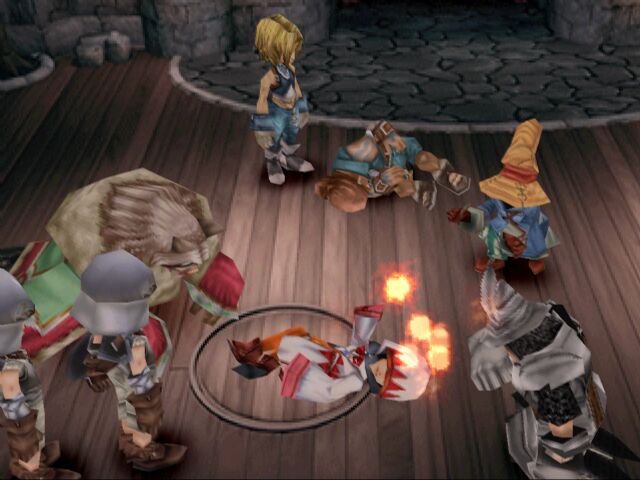Suikoden II is the journey of a mute adolescent who watches as everyone around him fights a "war" through a series of Deus ex Machina, but he takes all of the credit for it.
[QUOTE="texasgoldrush"]
I said either god or religion...the church is a villain in FF Tactics. Its a cliche and has become one. The religious or godly antagonist has been overdone in the genre. Its not an archetype. it doesn't matter if it a culture's perspective on religion, the evil church or diety element is overdone, like the brooding loathing protagonist and the anime chick sidekick. A game that handles religion very well is Dragon Age, highlighting both the good and the bad of organized religion.
Xenogears is the deeper story, but Suikoden II's story is better told and breaks most of the genre's norms.
hakanakumono
So JRPGs aren't allowed to cover religion as a subject matter because otherwise they are cliche'd? Antagonistic religions and gods were hardly prevelant in the genre. On the other hand, prior to Suikoden II there were countless stories of rebels taking over kingdoms. The hilarious thing about all of this is that Xenogears is far less cliche'd than Suikoden II by a long shot. Especially by your standards. In Suikoden II there are countries which are antagonists. Therefore, it is terribly cliche'd. This is too easy.
Suikoden II's war is country vs country, not evil empire vs rebels like the first game. and the protagonist country, Jowston, is not all good either and is paying for the sins of the past in multiple ways. In fact, most of the characters serving Highland can be considered good and honorable and many of the characters on Jowston's side are shady. This breaks cliche because instead of an evil country vs a good country, or an empire vs rebels, in the end, its two countries fighting for the same end, peace...through the annihilation of the other.
Funny you mention Xenogears...its a save the world from the bad guy plot. I think Krelian is a bright spot for Xenogears but it is cliche. So is the amnesic protagonist. While it has its twists and turns that are original, the plot itself is cliche.
As for this... "Suikoden II is the journey of a mute adolescent who watches as everyone around him fights a "war" through a series of Deus ex Machina, but he takes all of the credit for it."
Ever thought that that is a theme of a game...children fighting adult wars. The use of child soliders. The adults influence the protagonist. He is a figurehead and a symbol. A theme of the game is breaking free of these influences and to follow your own path...which the canon ending follows.This subverts the cliche of a youth hero...in many JRPGs featuring young protagonists, their youth is either celebrated or ignored...in Suikoden II, its put in a tragic light. Through moral choices, unlike most JRPGs, you and Nanami can leave the war early and end the game 4/5 of the way through. A silent protagonist works because he is like a WRPG character, you provide the dialouge and make decisions, while most are false choices, some big choices are not.
Deus ex machina my ass...........if you talk about Shu, he turns the war around but doesn't fix everything. In fact, he doesn't get full credit for solving the Luca Blight problem. Very few metaphysical aspects as well. Really this game avoids this.
So JRPGs aren't allowed to cover religion as a subject matter because otherwise they are cliche'd?
Because it has been done over and over. Here is a good uncliched way of handling religion....do not make them an antagonistic force, like Dragon Age Origins.

Log in to comment